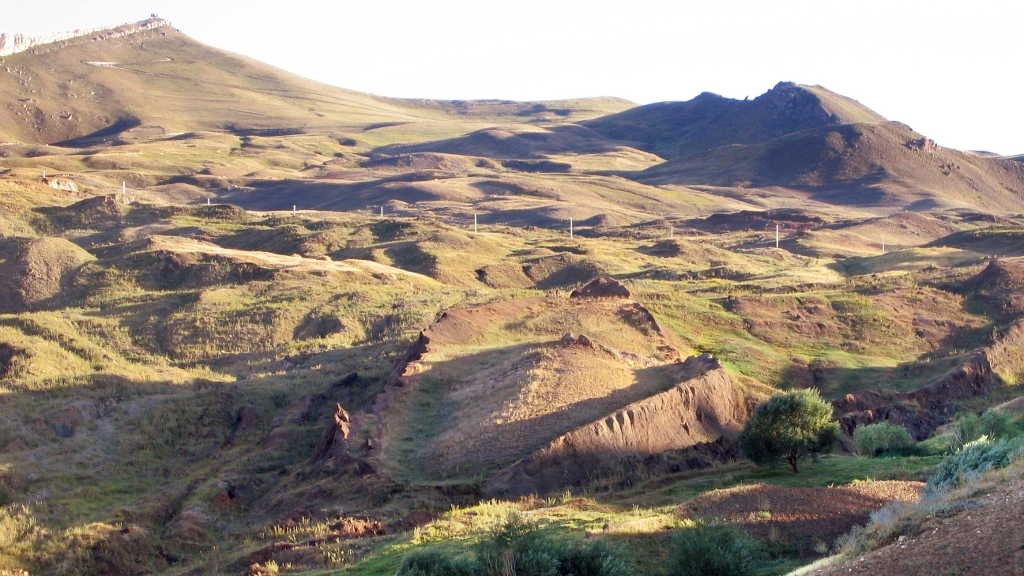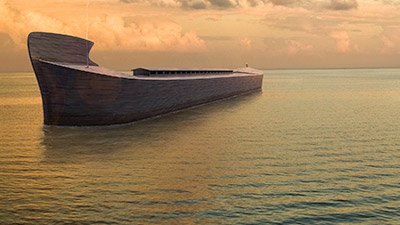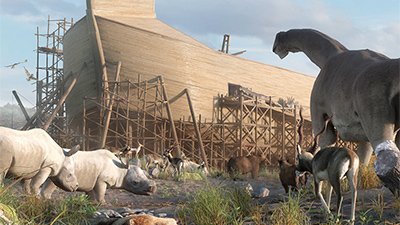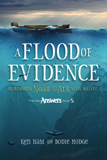Noah’s Ark
Noah’s ark was a ship of incredible size, built by Noah according to God’s command and instructions. The biblical account of Noah’s ark can be found in the book of Genesis.
Noah’s Ark: Overview
Noah’s ark was the vessel by which God spared a righteous man, Noah, and his family from God’s judgment against humanity’s wickedness. God commanded Noah to build an ark of specific proportions that would protect and preserve Noah, his family, and the animal kinds that would then repopulate the earth once the global flood event ended.
Noah faithfully followed God’s instructions for how to build the ark. When the time came, Noah, his family, and all the animals that God sent boarded the ark in preparation for the coming global flood.
Contents
- What Did Noah’s Ark Look Like?
- How Many People Built the Ark?
- How Long Did It Take to Build Noah’s Ark?
- What Tools and Technology Did Noah Use?
- How Many Animals Were on Noah’s Ark?
- How Could All the Animals Fit on the Ark?
- Could Noah’s Family Care for All the Animals?
- Were Dinosaurs on Noah’s Ark?
- How Could Dinosaurs Have Fit on the Ark?
- Have They Found Noah’s Ark?
- Animals After the Flood
What Did Noah’s Ark Look Like?
The Bible does not specify the exact shape of Noah’s ark, but it does provide key details about the size and proportions. Since there is no biblical guidance on the shape of the ark, how should we depict it? There are two primary options: a basic rectangular boxlike shape due to the lack of specific details or a more thoughtful construction that uses ship design principles that incorporate the dimensions outlined in the Bible.
The ark was not just a large boat, but a carefully engineered structure that was designed and built to withstand the tumultuous conditions of the flood. Despite lacking modern technology, shipbuilding in Noah’s day already used advanced building techniques, and it’s well within reason to expect that Noah, or builders hired by Noah, was able to craft a large ship that was up to the task of withstanding the tumultuous waters to come.
How Many People Built the Ark?
Did Noah build the ark by himself? Did he involve his family in the building process? The Bible does not speak to how many people helped to build the ark, but given the monumental task, it is perfectly reasonable to conclude that Noah did receive help from others. It’s possible that Noah’s extended family helped with the construction, and it is also possible that Noah hired workers and even utilized animals for heavy lifting.
Building the ark was not just a physical endeavor, but a spiritual one. Noah demonstrated his obedience to God through his faithful and diligent labor for decades to see God’s instructions carried through to completion. Rather than focus on the detail and effort of building the ark, the Bible focuses on Noah’s faithfulness in carrying out God’s instructions.
How Long Did It Take to Build Noah’s Ark?
Some people read Genesis 6:3 and the time frame of 120 years and assume the number reflects the amount of time that Noah took to build the ark. This verse simply shows the amount of time that God announced would pass until the global flood was to take place. Since this is the overall time frame, the countdown until the flood, the ark would have been completed in less time. And when taken with the other information available, we can narrow things down and arrive at a more accurate estimate of how long it took for Noah to build the ark.
Noah was 500 years old when his first son, Japheth, was born, and Shem, born shortly after, was 98 when the Flood occurred. Noah’s sons also needed time to grow up and find wives, and when allowing for those factors, a reasonable estimate for the construction period of the ark would be between 55 and 75 years. The ark was completed before the animals were loaded, which also required time for gathering and storing food. Therefore, it’s concluded that the actual construction time was likely around 75 years, rather than the full 120 years mentioned in the Bible.
What Tools and Technology Did Noah Use?
The construction of Noah's Ark, as described in the Bible, involved significant engineering and craftsmanship, and makes it clear the ancient world was more technologically advanced than many realize. The size of the ark required substantial manpower and skill, suggesting that the family had experience in woodworking and construction techniques suitable for such a large-scale project, and perhaps even experience in shipbuilding.
Additionally, the ark’s design indicates a level of understanding of buoyancy and stability, crucial for a vessel of its size. The construction likely required teamwork and skilled labor, as Noah and his family worked on this project over several years. The ability to manage such a large-scale endeavor points to a degree of technological capability that highlights the skills of people living at that time. Thus, while the exact tools and methods remain uncertain, Noah was well-equipped to build the ark using the resources and knowledge available to him.
How Many Animals Were on Noah’s Ark?
Far fewer animals needed to be on the ark than many realize, and we can get a better picture of this when we look at the details provided in Scripture. God gave Noah specific instructions regarding which animals, and how many, would be brought into the ark. It wasn’t necessary to have representatives from every single species, but rather pairs from the broader category of animal kinds. Furthermore, the only animals that needed to board the ark were air-breathing land animals and flying creatures, the animals who were not land-dependent were able to survive the global flood outside of the ark.
The number of animal kinds on the ark contained the genetic diversity required to produce the vast diversity of species we enjoy today. So the ark didn’t need to house animal pairs from every single species that existed before the flood, and after years of careful study and countless hours of research conducted by experts, we have arrived at a number that likely represents the number of animals aboard the ark.
Drawing the Line for Ark Kinds
Over one million animal species have been named, but it’s a mistake to assume all were on the Ark. The Bible says Noah took only air-breathing land animals. So that excludes sea creatures and possibly insects and other invertebrates. Of the land vertebrates, there are only around 33,000 named living species (and a few thousand more fossil species). These are divided into fewer than 10,000 genera and 1,000 families.
So how many kinds of animals were on the Ark? The answer depends on which modern taxonomic level—order, family, genus, or species—represents each original “kind.” A 1996 study assumed the genus, but the new Ark Encounter is evaluating each family.

What About Fossil Species?
The various studies of “kinds” have included fossil creatures in their lists of “families” and “genera.” Determining the number of fossil species is much more difficult. Since vertebrate fossils are often incomplete, there may not be enough material to identify the specimen as a new species of a known genus. Or, the physical differences may simply represent variations within one species, rather than differences between two species.
How Could All the Animals Fit on the Ark?
One of the natural questions that follows when discussing how many animals were on the ark, is how could all the animals fit into one vessel? There are some incorrect assumptions that people typically make when considering this question. When we dig into Scripture and correct those false assumptions, it becomes clear that it is completely reasonable that Noah’s ark could hold all the required animals.
The Bible describes that a pair of every animal “kind” will board the ark, and animal kinds refers to broader groupings than modern species classifications. This greatly reduces the number of animals that would have been on board the ark, as only a limited number of original kinds were needed. Furthermore, it is much more likely than young animals or smaller representatives of each kind would have been chosen for the journey. They require less space, they don’t eat as much and thus don’t create as much waste, and they would have had more time to reproduce after the flood.
Could Noah’s Family Care for All the Animals?
While it's possible that God provided miraculous care for the animals on the ark, Scripture does not require us to rely on miracles to explain their daily needs. According to the Bible, Noah's ark served as a refuge for representatives of all air-breathing land animals created by God. Although there are demonstrated miracles, like God bringing the animals to the ark (Genesis 6:20; 7:9, 15), exploring natural solutions for their care does not diminish God's role.
Research into low-tech animal care methods shows that a small group of people could manage the needs of up to 16,000 animals effectively. There are simple systems that Noah could have used to allow his small family to reasonably care for the thousands of animals aboard the ark.
Were Dinosaurs on Noah’s Ark?
The common narrative from movies, TV, newspapers, and textbooks suggests that dinosaurs dominated the planet for 140 million years before going extinct 65 million years ago, meaning they were not present when Noah and his ark set sail about 4,300 years ago. But what does God’s Word say? Were dinosaurs on Noah’s ark?
The Bible tells us that God created land animals, which would have included dinosaurs, on day six of creation. While the Bible doesn't specify the exact timeline for the creation of the world and its creatures, we can estimate the universe's age by examining the teachings of Scripture. From the genealogies and ages included, we can determine that the universe is only a few thousand years old, not the millions of years claimed by others. Because dinosaurs were created on the same day as all the other land animals, they were represented on the ark.
How Could Dinosaurs Have Fit on the Ark?
Many people wonder how all the animals could fit on the ark. But Noah didn’t need to bring lions, leopards, and tigers; just a single pair from the cat kind would suffice. Also, many of the animals were likely smaller than what people typically imagine. It makes more sense to think that God would have sent juveniles or smaller varieties of each kind.
There are several advantages to this approach: juveniles take up less space, require less food, produce less waste, are generally more docile and easier to manage, are less prone to injury, and have more time to reproduce after the Flood. Ultimately, the goal was to keep these animals alive so they could “be fruitful and multiply on the earth” (Genesis 8:17). The same is true for dinosaurs.
Have They Found Noah’s Ark?
The search for Noah's ark has captivated many, with numerous claims and expeditions attempting to locate it on Mount Ararat in Turkey. Over the years, various artifacts and structures have been presented as evidence of the ark’s existence, including wood-like formations and ancient remains. However, many of these findings have been met with skepticism and lack rigorous scientific validation. The search is complicated by factors such as harsh weather conditions, political instability, and the challenge of identifying credible evidence among numerous hoaxes and misinterpretations.
Despite the excitement surrounding potential discoveries, no conclusive proof of Noah's ark has been established. Overall, while the allure of finding the ark continues to inspire exploration, the scientific community remains cautious, recognizing the need for careful analysis and caution when evaluating claims related to its existence.
Animals After the Flood
All modern animals descended from the original kinds brought onto the ark, and the original kinds that survived on the ark are what gave rise to the vast diversity of life we see today. After the Flood, animals migrated and adapted to various environments, leading to speciation as they encountered different ecological niches. God's good and amazing design allowed for rapid diversification as animals migrated and adapted to their new environments.
Noah’s Ark Topics
-
Noah’s Ark Found?
Many websites buzz with the claim that Noah’s Ark has been found in Turkey, Armenia or Iran. Is there any true archaeological substance to these claims?
-
The Origin of Species After the Flood
Modern science is giving us more windows into this enigma of antiquity. The more we learn about the origin of species, the more hints we gain into Noah’s vistas.
News About Noah’s Ark
-
Nov. 21, 2025 from Ken Ham Blog
Recently, the Today show dedicated three minutes to on-site reporting of “new evidence” of the ark. But has Noah’s ark really been found this time?
-
Nov. 6, 2023 from Ken Ham Blog
A recent headline claimed: “Archaeologists Think They Might Have Found the Real Noah’s Ark.” Should Christians tout this as proof of the truth of Genesis?
-
Oct. 7, 2021 from Ken Ham Blog
Another claim suggests the Durupinar site is the location of the final landing place of Noah’s Ark, but it’s doubtful the claim is true.
Articles About Noah’s Ark
-
Dec. 5, 2025 from Answers in Depth
If the floodwaters covered Everest today, the ark would rise almost 3,000 feet above the breathable limit.
-
Feb. 23, 2025 from Answers Magazine
By studying the diversity of animals on Noah’s ship, we can understand how many creatures were destroyed in the flood and how so few animals repopulated the earth with the variety we enjoy today.
-
Jan. 5, 2025 from Answers in Depth
Preliminary sea trials indicate the superiority of a bow-mounted fin for directional stability. How could this be interpreted in the context of Noah’s Ark or ancient shipbuilding?
-
Dec. 7, 2024 from Ken Ham Blog
How many animals did Noah need to take with him on the ark?
-
Nov. 20, 2024 from Answers in Depth
Ancient records indicate the feasibility of Noah’s Ark
-
Nov. 13, 2024 from Answers in Depth
The estimated numbers, sizes, and types of ark animals impact nearly every aspect of the vessel’s interior operations.
-
Oct. 8, 2024 from Answers in Depth
Was Noah Primitive?
-
Aug. 30, 2024 from Answers in Depth
Totally God, totally Noah, or somewhere between?
-
Aug. 9, 2024 from Answers in Depth
The Bible’s description of Noah’s ark stands out as a realistic vessel. Genesis 6:15 can tell us quite a lot about the accuracy and validity of the flood.
-
Aug. 9, 2024 from Answers in Depth
The size and nature of the waves during the deluge dictates the strength of the ark.
-
Oct. 8, 2023 from Answers Magazine
Skeptics claim that a wooden ship the size of Noah’s Ark couldn’t possibly stay afloat. Did God perform a miracle to keep it from sinking?
-
Aug. 24, 2021 from Answers Magazine
Despite multiple expeditions over many centuries, Noah’s Ark still has not been found. A geologist proposes one reason why.
-
Oct. 7, 2020 from Answers in Depth
Explore the origin of pre-flood “gopher wood” and possible identities of the wood used to build Noah’s ark.
-
Jan. 31, 2020 from The New Answers Book 4
There’s a biblical ark that rode out the Flood, and it was no bathtub. Noah built it somehow, with or without some mysterious ancient technology.
-
Feb. 1, 2019 from Answers in Depth
How many of each kind of animal were on the Ark? Look at just about any popular depiction of Noah’s Ark and you’ll likely get the wrong impression.
-
Jan. 7, 2018 from Answers Magazine
The Bible gives us only a few details about the Ark’s appearance, but we can make some educated guesses based on basic principles of good shipbuilding.
-
Nov. 19, 2017 from Answers Magazine
Even if Noah could build a wooden Ark strong enough to survive a yearlong Flood, how could he house and feed all those animals?
-
Nov. 5, 2017 from Answers Magazine
Modern skeptics frequently assume that someone living in Noah’s time would have been incapable of building something as large and sophisticated as the Ark.
-
March 26, 2017 from Answers Magazine
Beneath Noah’s Ark illustrations and toys is a faulty assumption that the creatures on Noah’s Ark looked like the ones we see today.
-
Dec. 5, 2016 from Answers in Depth
Even though there are mostly good germs, many tend to focus on only the bad germs. So skeptics question whether pathogens were present on the Ark.
-
A Spectacular Confirmation of Darwin’s Argument—for GenesisJuly 9, 2016 from The Origin of Species After the Flood
Since species are defined by traits and characteristics that are heritable, the origin of species is a fundamentally genetic question.
-
Did Darwin Argue That Species Originated Recently?July 2, 2016 from The Origin of Species After the Flood
Careful reexamination of the first two chapters of Darwin’s seminal work, On the Origin of Species, leads to a surprising conclusion.
-
July 1, 2016 from Answers Magazine
Thousands of hands have touched the new, full-size Ark replica. Building it took devoted artisans who believe real people originally made it happen.
-
July 1, 2016 from Answers Magazine
At a cost of $100 million, a life-size wooden Ark opens this summer. What’s behind such a massive project?
-
July 1, 2016 from Answers Magazine
After eight years of planning and almost two years of construction, the Ark Encounter will open its doors.
-
Tracing the Fate of the Animals that Survived the Post-Flood ExtinctionJune 18, 2016 from The Origin of Species After the Flood
Today’s species are the link between the past and the present. The genetics of the species around us today contain the echo of the Ark.
-
What Happened to the Animals After Noah’s Ark?June 11, 2016 from The Origin of Species After the Flood
After the animals Noah took on board the Ark survived the Flood and stepped off the ship around 4,500 years ago, where did they go? What was their fate?
-
Which Animals Were On the Ark with Noah?May 28, 2016 from The Origin of Species After the Flood
Male and female animals were on board Noah’s Ark to reproduce after the Flood. This has profound ramifications for identifying what the kinds looked like.
-
Can We Find Noah’s Animals . . . in the Modern World?May 14, 2016 from The Origin of Species After the Flood
The more we learn about the origin of species, the more we know about Noah’s Ark. The Flood reverberates to the present day in the form of genetics.
-
May 8, 2016 from Answers Magazine
Misunderstandings are on full display when it comes to the biblical account of the Flood. Are you guilty of any of these ten common misconceptions?
-
Magazine Department ArticleNot Your Great-Great- . . . Grandfather’s ArkApril 1, 2016 from Answers Magazine
Hundreds of thousands of people will soon flock to Williamstown, Kentucky, to visit the Ark Encounter, opening July 7, 2016.
-
The Ark’s DinosaursMarch 21, 2016 from Thinking Outside the Box
As we prepare to open the Ark Encounter on July 7, many people have wondered if we will have dinosaurs at the attraction in Northern Kentucky.
-
Jan. 12, 2016 from Answers Magazine
The Bible gives us essential details on many things, like the size and proportions of Noah’s Ark, but does not necessarily specify the shape of this vessel.
-
What Was the Pre-Flood Population Like?Jan. 6, 2016 from Thinking Outside the Box
The Bible explains that people were extremely corrupt and violent prior to the Flood.
-
Jan. 1, 2016 from Answers Magazine
I often think of how stunned Noah must have been when he first saw the awesome devastation and the breathtaking beauty of the transformed world.
-
Downtime on Noah’s ArkNov. 16, 2015 from Thinking Outside the Box
At the Ark Encounter, we have been considering the family’s downtime while on the Ark, for we plan to depict each of the family members in various settings.
-
Designing Often Forgotten Marsupials for the ArkOct. 19, 2015 from Thinking Outside the Box
What are the first animals that come to mind when you think of Noah’s Ark?
-
How Could Noah Build Something So Large?Aug. 31, 2015 from Thinking Outside the Box
Since people in Noah’s day had such long lifespans, think of the amount of knowledge and skills they could acquire.
-
Feedback: “Bill Nye the Straw Man Guy” RebuttalAug. 4, 2015
We do not reject any evidence that is found, whether it is an ancient tool or fossilized bones. What we often reject are the interpretations of this data.
-
How Much Water Was On Board the Ark?April 13, 2015 from Thinking Outside the Box
Have you ever thought about how much water Noah and his family would have needed onboard and how they would obtain it?
-
Christ and the Ark of NoahMarch 19, 2015
Noah’s Ark is an amazing object God designed to save Noah and his family from the Flood, but today we have an infinitely greater Ark—the Lord Jesus Christ!
Recommended Resources

Answers in Genesis is an apologetics ministry, dedicated to helping Christians defend their faith and proclaim the good news of Jesus Christ.
- Customer Service 800.778.3390
- Available Monday–Friday | 9 AM–5 PM ET
- © 2026 Answers in Genesis





























